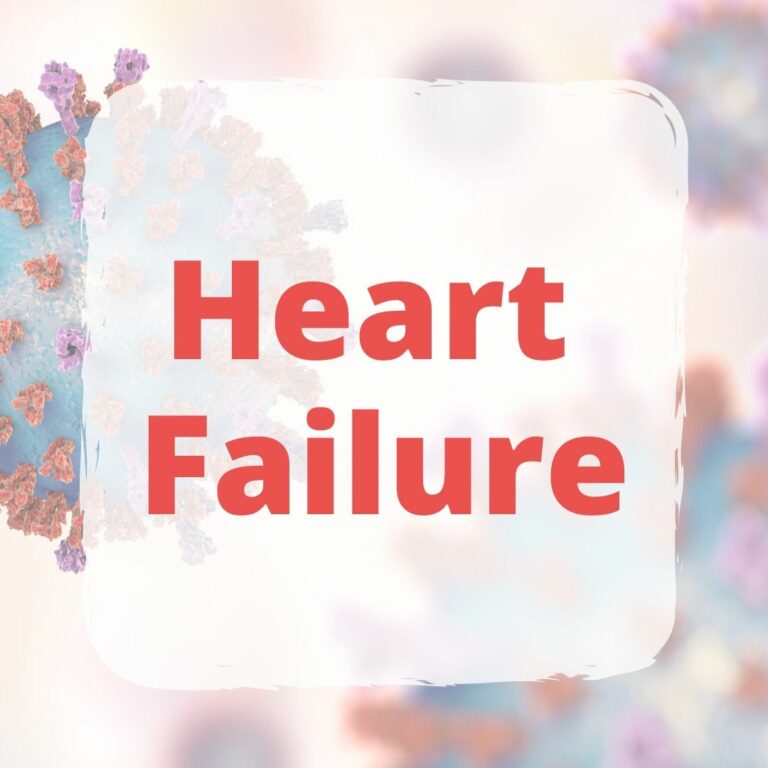[vc_row][vc_column width=”3/4″][vc_column_text]This advice is based on information from the Heart Failure Patient Council of the Global Heart Hub. Croí is a member of the Global Heart Hub.
Covid-19 presents the world with an unprecedented public health challenge. Its rapid spread has caused significant alarm and disruption across the globe. Understandably, those living with heart disease and heart failure are anxious and concerned.
It is well established that many virus infections can affect the heart, and experts suspect that coronavirus is no different. Viruses are known to induce inflammation of the myocardium (heart muscle). While in a healthy patient this may not lead to an adverse outcome, the situation for those living with heart disease and heart failure is different. Evidence suggests that if these individuals become infected with coronavirus they are at greater risk of adverse cardiac events and the outcomes may be poor.
COVID-19 is a new illness that can affect your lungs and airways. It’s caused by a virus called coronavirus. With the number of cases around the world increasing on a daily basis, hospitals are experiencing an unprecedented increase inpatient admissions. Consequently, hospitals are cancelling clinics and l non-urgent activity. Only urgent and emergency cases are being treated to reduce the strain on staffing and beds, and prevent vulnerable patients being exposed to the COVID-19 virus unnecessarily.
It is important to remember that hospitals will continue to treat heart patients, but the current pressures may result in delays, cancellations of appointments and disruption of services. The decisions on who will be treated will be based on clinical need, with those in most need of treatment being prioritised.
For further information on COVID-19 virus and symptoms see Croí’s advice here.
Staying well
For those living with Heart Failure:
- Take all your medicines as advised by your doctor or nurse.
- Do your best to follow all your medical advice on how to keep your condition well controlled.
- Continue to self-monitor your condition and record your weight on a daily basis (first thing after you get out of bed in the morning).
- Stay in regular contact with family, friends or neighbours as you may need to ask for help if you become sick.
- Maintain a healthy diet – unless you have been advised to adhere to a specially prescribed diet, you should continue to try and eat a wide variety of foods that are rich in vitamins, minerals, fibre and other essential nutrients.
For Family and Caregivers:
- Know what medications are prescribed and make sure supplies are secure.
- Watch for new symptoms.
- Prepare a plan to make sure food and other supplies are available when needed.
- Consider options and have a plan for what would happen if you become ill.
What should I do if I experience gradual or persistent worsening symptoms of Heart Failure, such as my weight increasing or my legs swelling?
Self-monitoring of your condition on a daily basis is very important. It is equally important that you take your daily medicines as prescribed by your doctor.
If you experience any of the following worsening of symptoms, you should contact your GP, if available your Heart Failure Nurse or your local Heart Failure Clinic for advice and review of your medication. Due to the outbreak of COVID-19 many hospital staff have been redeployed. If you are unable to contact you heart failure nurse or team please contact your GP or local emergency department if you are concerned.
Worsening symptoms to look out for:
- Weight increase greater than 3lb overnight or 5 lb (2kg) in a week .
- Increased swelling in the legs or abdomen.
- Increased shortness of breath on exertion, lying down or in bed at night.
If you have very sudden or very severe symptoms call for an ambulance so that you can be taken to hospital for treatment as soon as possible.
STAY CALM!
It is perfectly understandable that people may be feeling anxious or concerned about what might happen to them or their loved ones over the coming months. However, we must remind ourselves that this crisis will end. Only seek information from reliable sources – there is a huge amount of ‘fake news’ and false rumours which do nothing more than cause unnecessary anxiety and distress.
Already many heart patients are slow to respond to changes in their health or they are dismissing new symptoms because they do not wish to burden their doctor or local hospital. Despite the Covid-19 crisis, doctors and emergency rooms are still there to help heart patients so do not ignore worrying symptoms or delay in contacting them if you are unwell. Keep up to date with your local health information notices on how best to contact your GP or Heart Failure Nurse. The Heart Failure Patient Council of the Global Heart Hub are being advised by medical and public health experts and we will keep you updated on any changes in information that could affect those living with Heart Failure.
See Croí’s health page for more information on heart failure.
The Croí Health Team is here as always if you need support. Contact us by email at healthteam@croi.ie or call 091-544310.[/vc_column_text][/vc_column][vc_column width=”1/4″][vc_posts_slider count=”3″ interval=”3″ title=”I Have Just Been Told I Have Heart Failure, What Does This Mean? (Click below)” posttypes=”post” posts_in=”9158″][/vc_column][/vc_row]
